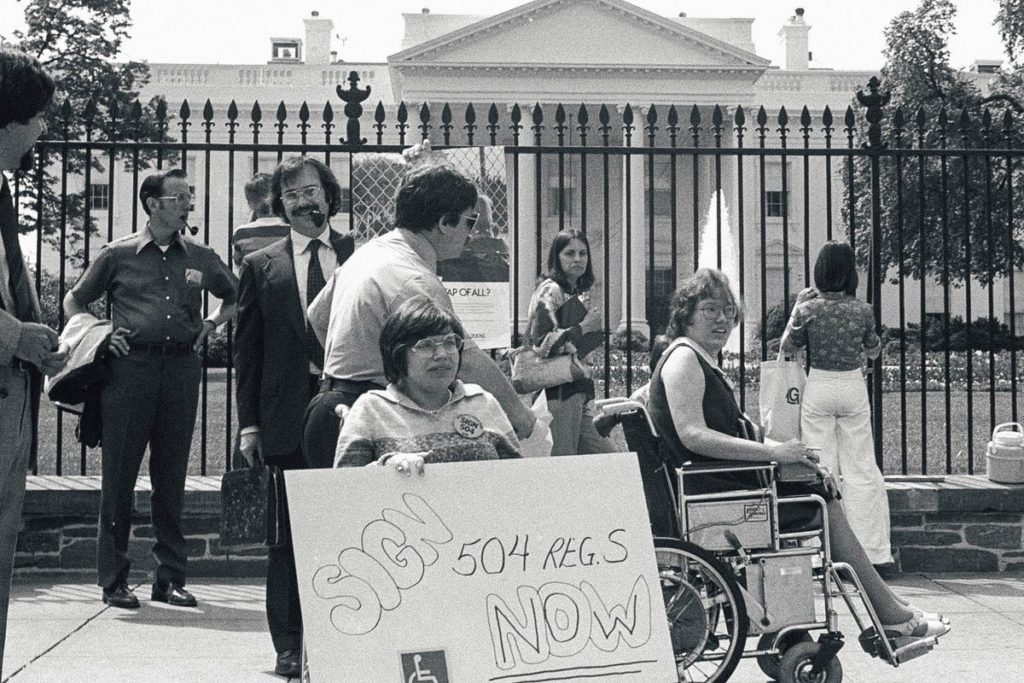A recent report from the USC Annenberg Inclusion Initiative, analyzing the U.S.-based 126 movies and 180 series released on Netflix in 2018 and 2019, revealed that just 5.3 percent of stories were led or co-led by characters with a disability, as compared to the 27.2 percent of the U.S. population who live with a disability. Netflix is far from the only media company with much work to be done both on-screen and behind the scenes when it comes to inclusion. The streamer has teamed up with FWD-Doc: Documentary Filmmakers with Disabilities and the U.K.’s Doc Society to launch Toolkit For Inclusion & Accessibility, a new resource for the U.K. industry.
The 62-page document “includes a wealth of practical advice to help filmmakers make change across development, production, post, distribution, and exhibition” as well as information about “how to craft the best closed captions and audio descriptions and the language film critics and journalists should use when writing about disability on screen,” Screen Daily reports.
“There are different ways the Toolkit can be used and we hope that people find it a really empowering document to dig into,” said Lindsey Dryden, producer of chronic fatigue syndrome doc “Unrest” and one of the Toolkit’s authors. The founding member of FWD-Doc added, “It can be used at an individual level, or by production companies and bigger teams.”
The document contains information and resources relevant to both the documentary and fiction filmmaking, and includes “the latest figures about D/deaf and disabled people in film” as well as “advice and reflections from dozens of D/deaf and disabled filmmakers from the FWD-Doc community.” A case study of “Crip Camp,” one of year’s most celebrated docs, is also highlighted. Directed by Nicole Newnham and Jim LeBrecht, the Oscar-shortlisted title is a loving tribute to a ramshackle summer camp for teenagers with disabilities that helped spark a revolution.
“The stories from our community are often, they’re told by people outside the community, and not with them,” said LeBrecht. “But if we can’t make those films, or do this work, that’s just going to continue to make people with disabilities underrepresented and misrepresented.” He emphasized, “When you have a very authentic story — not just around disability, with any story — it is heightened. It’s better entertainment. It feels truer, people had not mined our community and looked at us as makers to feed the industry with these stories…We’ve been saying for a while this is good business, there’s money in them there hills,” he added, citing Apple’s recent $25 million acquisition of Siân Heder’s “CODA” at Sundance. The coming-of-age story about a teen girl who is also the only hearing member in a Deaf family won all three of the fest’s top U.S. Dramatic honors.
The source notes that disabled people “make up over 20 percent of the U.K. population, with spending power of £274 [or about $382] billion per year.” Dryden noted, “If you’re forgetting about a fifth of your audience, you’re forgetting about some creative opportunities. Jim and Nicole put it really beautifully in the Toolkit itself. We spend all this time and energy and love on crafting our storytelling. But what if we’re just handing over the captioning, which is a thread of our storytelling, to somebody else? Or instead of describing what a piece of music is doing, the caption just says ‘music.’ I think accessibility opens up these extra layers of storytelling. That’s what we’re all here for.”
“LeBrecht said the visibility for ‘Crip Camp’ has been helped by dedicated work from Netflix, which has released assets including a script of the film for deafblind audiences, and from the Obamas’ production company Higher Ground,” Screen Daily details.
“We’ve heard a little from film folks that there is a ‘Crip Camp effect’ — it really made people stop and think notice, and that is validation this is an important story. This is an incredibly exciting moment,” said LeBrecht. The filmmaker hopes that the Toolkit will help give folks who want to be more inclusive of disabled filmmakers and disabled audiences insight into how to get started. “People say, ‘We need to do better. But how do we do this? I don’t know anything about providing access’… Well now they have 62 pages. The information is in there, if you’re unsure about captioning or audio description, this document can help,” he explained.
Dryden’s hope is for the document to be updated annually “as progress is made and as technology evolves.”
“I’d love to update the Toolkit with the next major U.K.-supported film that can be as strong a case study as ‘Crip Camp,’” Dryden said. “I would love to update the Toolkit with a picture of a wheelchair user going up onto the stage of a major award ceremony, because the ramp is provided by default. That would be a beautiful update.”
A U.S. version of the Toolkit is in the works.






